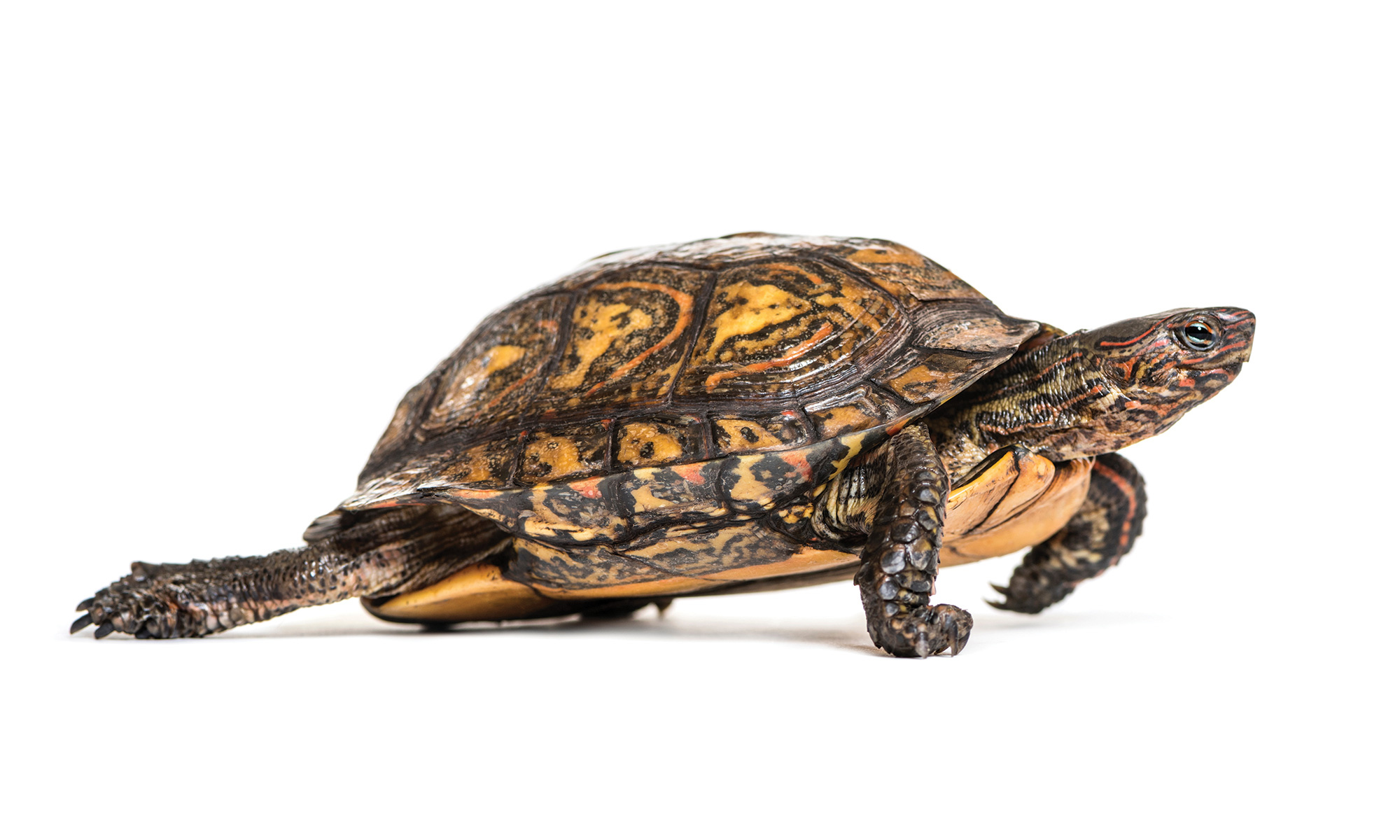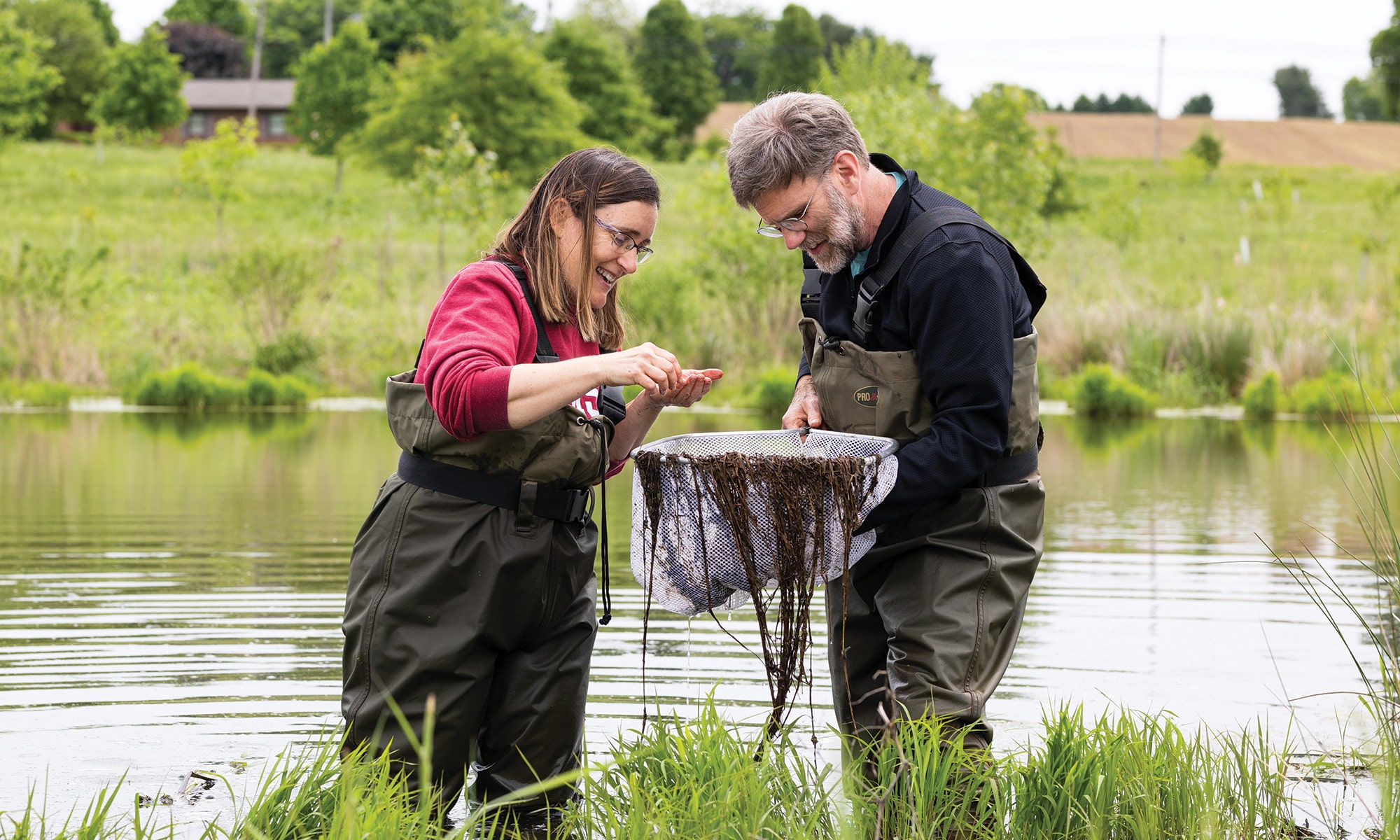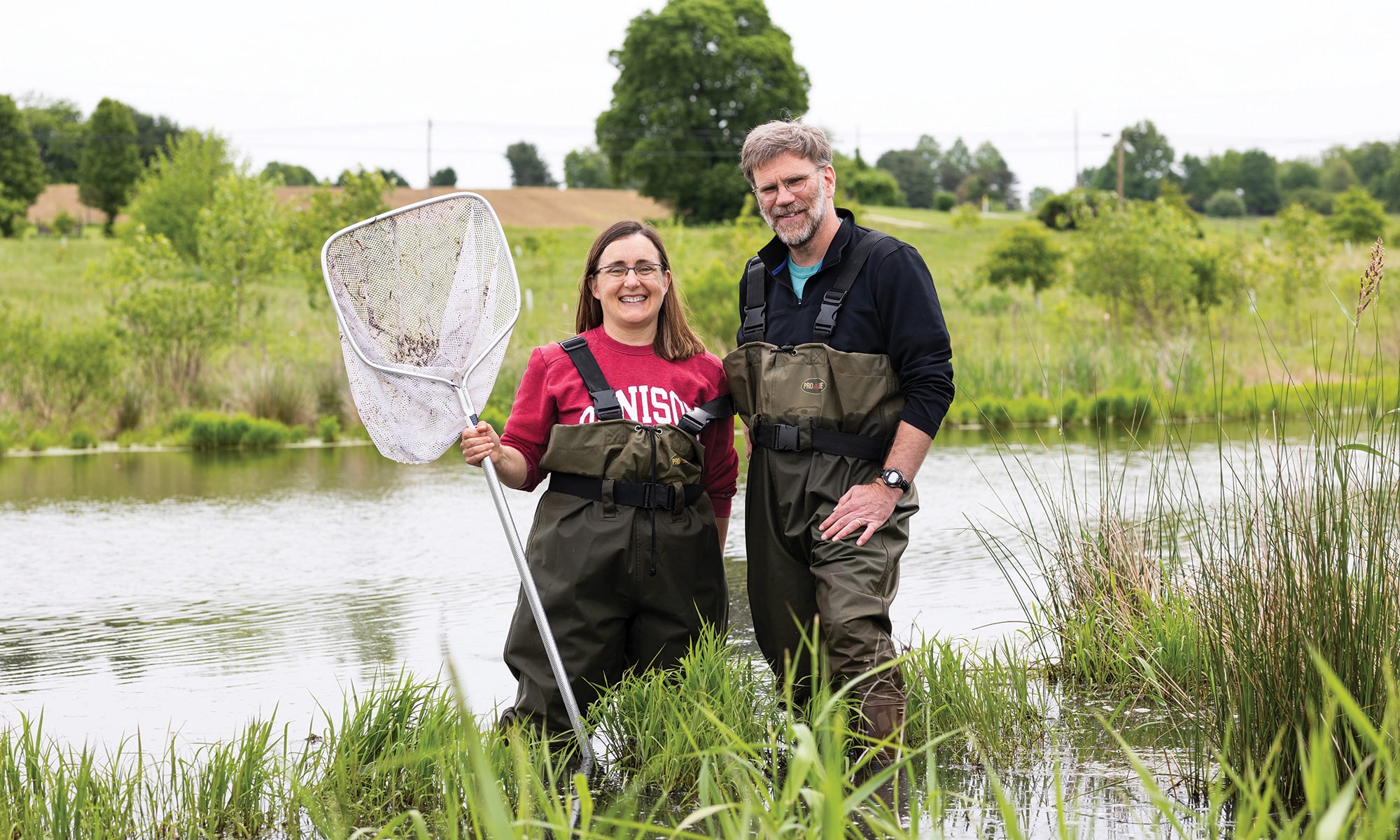Rettig: We’re ecologists as well as biologists, so we often study fish, frogs, toads, tadpoles, insects, turtles, and other animals that, yes, live in ponds. We came to Denison in the fall of 2000, and our shared position in biology covers a single full-time teaching load. Early on, we were each expected to develop independent scholarly programs and publish like a full-time faculty member to receive tenure. So, we mainly pursued our own separate research through tenure. It’s only in the past five or six years that we’ve more intentionally coordinated our research.
Smith: The shared position has had a lot of advantages, including allowing us to be very engaged with our sons – one or the other of us coached the boys’ soccer teams for many years, volunteered in their classrooms, and traveled with them for games or band activities. And they’ve both been involved, usually voluntarily, in our field work here at Denison, but also in a project in northern Indiana where we studied turtles. Both boys have pursued science – one in biology and one in chemistry.
Rettig: Sharing this position has also made it possible to team-teach more easily, which we typically do with our upper-level classes. In part this is because we both bring our own expertise and interests to these courses. For example, I’ve spent a lot of time doing research on fish so in Vertebrate Zoology it makes a lot of sense to have me use that expertise to teach about the fishes (and there are a ton of fishes). Meanwhile, Geoff has spent a lot of time doing research on amphibians and reptiles, so he teaches about those animal groups. Another example is that I focus more on predation, where Geoff’s emphasis is competition. Also, I don’t like snakes, Geoff is comfortable with snakes.
Smith: We also team-teach these courses because we both really like them – they were inspired by similar courses we took as undergraduates at Earlham. To be honest, neither of us wanted to be the person who didn’t get to teach those courses, so team-teaching lets us both teach some of our favorite topics. Because we both had undergraduate experiences that emphasized engaging students in hands-on science, we have similar ideas about how the courses should run. That’s not to say we don’t have “discussions” about how the course should go, of course.
Do your natural dispositions play a part too?
Rettig: Especially when we team-teach the students do identify differences in us — for instance, students report that Geoff is more organized when he lectures and has a dry sense of humor, while I am more likely to veer off-track at times in lecture and am viewed as more energetic Each student might connect better with one or the other of us — that’s good, and overall students report they find it positive to engage with two professors in a single course.
Professors Jessica Rettig and Geoff Smith have shared the same Denison teaching position for two decades.
You’ve been on sabbatical this spring, and will have a Bowen Faculty Fellowship leave in the fall. Where is your research taking you?
Smith: Recently we’ve been studying how restored or newly created habitats are colonized by animals and plants, and how those biological communities develop and mature over time. We can observe this first-hand at the Granville Schools Land Lab, a cool space near Denison that happens to have four recently established ponds.
The Land Lab was established by Granville High School students in Jim Reding’s AP Environmental Science class. They worked with the U.S. Fish and Wildlife Service to convert several acres of agricultural fields around the Granville Intermediate school into a variety of prairie and other terrestrial habitats, and 4 ponds or wetlands. We were involved in the project early on.
Rettig: It’s a great opportunity for us to work together and use our complementary skills, interests, and research expertise. We also use the Land Lab to do ecology research with individual Denison students (such as summer or senior research), with Granville High School students, as well with our classes. The Land Lab is a nice supplement to Denison’s Biological Reserve where we also conduct research. In some ways, the BioReserve gives us a view of how the Land Lab might look in 50 years or so.
Smith: The Land Lab really presents a rare chance to follow the development of the ecology of habitats from scratch: When do animals first arrive? How do their numbers change and how does the variety change as the community develops? We’ve been studying the ponds to see how aquatic insects and crustaceans use the ponds, and we’ve started exploring how turtles use the ponds and move among them.
Rettig: Much of our sabbatical is being spent examining data on aspects of these aquatic insect communities in these ponds and on microscopic crustaceans there. We’ll continue our studies of the turtles too.
Time to talk about turtles.
Rettig: Turtles are just cool creatures — I’m amazed that turtles arrived so quickly to the new ponds in the Land Lab. Given how humans have manipulated the landscape to make life hard for a turtle - by filling in or draining wetlands & ponds, putting barriers between ponds and lakes (roads, subdivisions), destroying nesting sites, I am impressed by their tenacity.
Smith: Turtles were really important to my development as a biologist and as an ecologist. As an undergraduate I began research on turtles as a first-year student in a vertebrate zoology course I was taking from the professor who became my mentor, John Iverson. We took a field trip to the northern Indiana field site I mentioned earlier. I then worked with John researching turtles in Nebraska, Mexico, and the southwest USA. I’ve continued to work with John on turtle projects for the past almost 30 years and we are still writing up the results. The Land Lab has given me the opportunity to explore turtle ecology locally.
Jessica, if you could be any biological organism, which would it be?
Rettig: Honestly, I am not good at deciding favorite things.
Geoff, your turn.
Smith: I’m not sure — I’d probably say a human.



